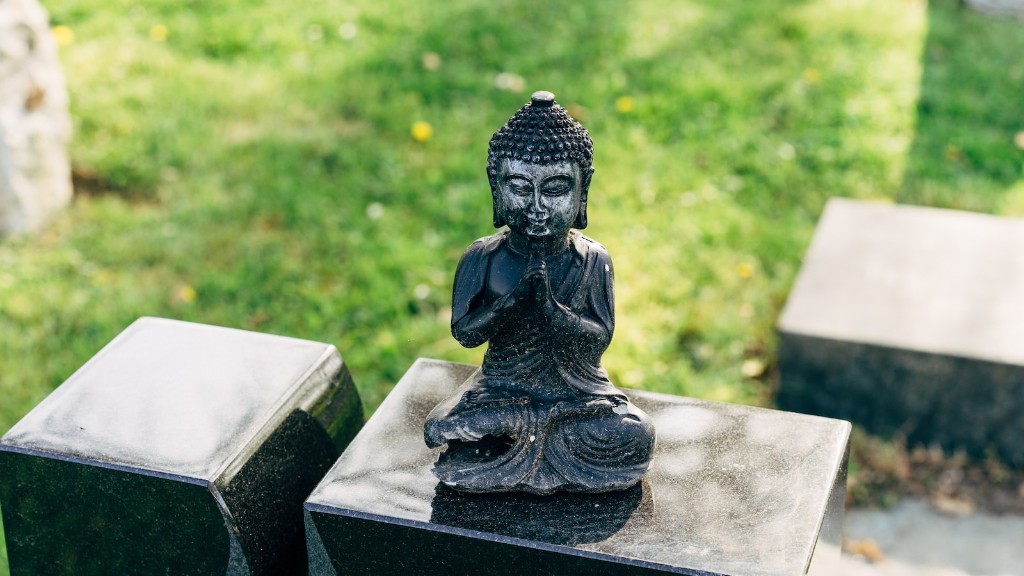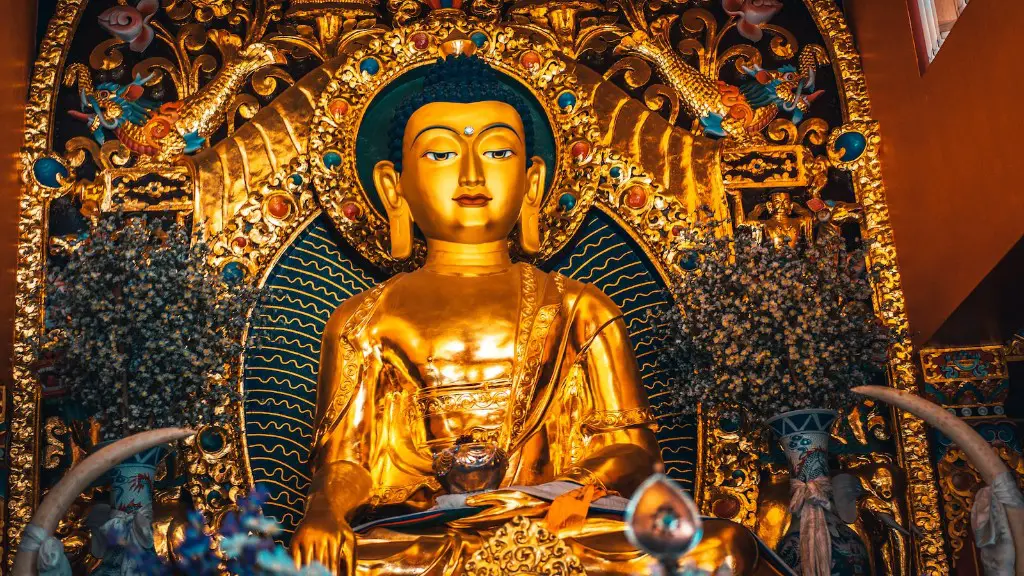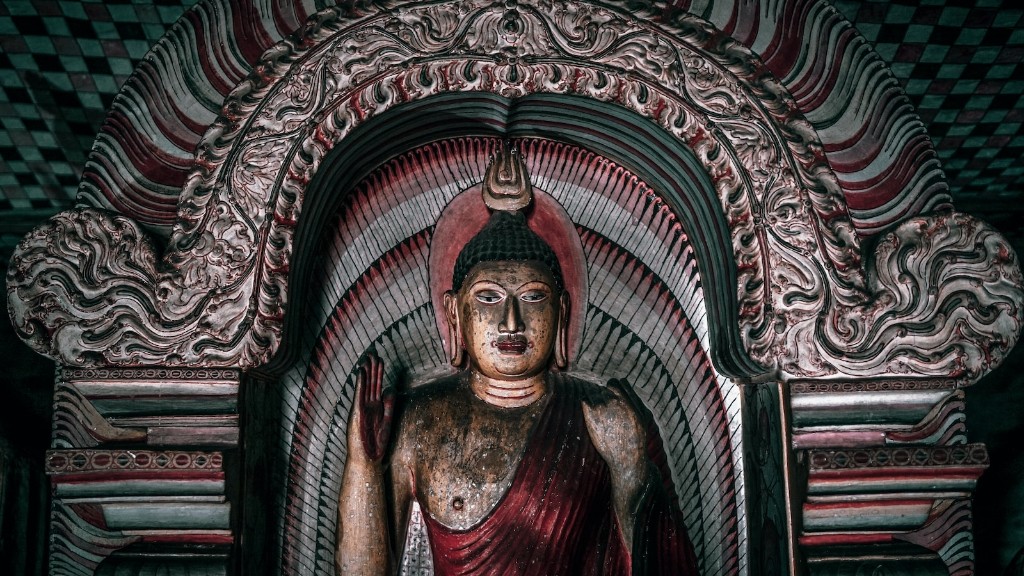Buddhism is a religion and philosophy that originated in India in the 6th century BCE. The core beliefs of Buddhism include the Four Noble Truths, the concept of karma, and the practice of meditation. Buddhism is a religion that is followed by millions of people around the world.
To practice Buddhism, one must adhere to the five moral precepts, which are to refrain from harming living beings, stealing, sexual misconduct, lying, and taking intoxicants. One must also follow the Noble Eightfold Path, which includes right view, right resolve, right speech, right action, right livelihood, right effort, right mindfulness, and right meditation.
How do I begin practicing Buddhism?
There is no one correct way to “practice” Buddhism. Different schools and traditions may have different formalities and requirements, but ultimately it is up to the individual to decide how they want to engage with the teachings. Some people may choose to simply read about Buddhism and meditate on their own, while others may participate in more formalized practices such as attending temple services, taking Bodhisattva vows, or chanting. It is important to remember that Buddhism is a path of self-awakening and transformation, so each person’s practice will be unique to them.
Buddhists monks have a very strict daily routine that revolves around meditation, studying scriptures, and taking part in ceremonies. In order to maintain their monkhood, they must live in Buddhist monasteries or shrines and follow a set of rules called the Vinaya. The most important thing for a Buddhist monk is to maintain their detachment from the material world and to focus on their spiritual journey.
How to practice Buddhism in everyday life
Buddhism is a way of life that can be practiced in every moment. It is a religion that teaches us to be kind and compassionate to all beings. There are many different ways to practice Buddhism in daily life. Here are some of the most common:
1. Upon waking up, take a moment to cultivate a kind heart. This can be done through simple practices like offering a prayer or mantra for the day ahead.
2. Take time each day to meditate. This can be done for just a few minutes, or for longer periods if you have the time.
3. Practice Dharma at the workplace. This can involve being mindful of our actions and interactions with others, and working to cultivate a positive and productive environment.
4. Be mindful of living in an interdependent world. This means being aware of the interconnectedness of all beings and working to create a world that is supportive and just for all.
5. Be mindful of our actions. This includes everything from the food we eat, to the way we speak to others.
6. Offer our food. This can be done by giving food to those in need, or by simply offering a prayer of thanks before each meal.
The three topics mentioned in the prompt are interconnected and progressive in nature. Śīla, or moral conduct, lays the foundation for samadhi, or meditation, which in turn is necessary for prajna, or wisdom. In other words, one’s body and mind must be in a fit state in order to achieve the concentration needed for gaining a clear understanding of the truth.
What is forbidden in Buddhism?
The precepts are basic guidelines for living a moral and ethical life according to Buddhist teachings. They are based on the belief that all living beings have the same basic rights and should be treated with compassion and respect. The precepts are meant to develop mind and character so that we can progress on the path to enlightenment.
Buddhism teaches that drinking or using other kinds of drugs can cause carelessness and should be avoided. This is because carelessness can lead to suffering and Buddhists believe that suffering should be avoided. Strong Buddhist beliefs would therefore be expected to have a significant impact on alcohol use.
Can anybody be a Buddhist?
Anyone can be a Buddhist. An individual does not particularly have to be born or raised in Buddhist culture nor do anyone’s parents have to be Buddhist. The said individual can be of any race, region, gender, socio-economic background, etc.
Yes, anyone can become a Buddhist. You don’t need to be born into a Buddhist family or have a certain ethnic or cultural background. You will need to take refuge in the Triple Gem and follow a ceremony during which you take a vow to uphold the Five Precepts (to not kill, not steal, not commit sexual misconduct, refrain from false speech and not take intoxicants that lessen your awareness).
What are the 7 rules of Buddhism
Buddha’s 7 Rules of Happiness are:
1. Clear Viewpoint
2. Don’t just believe anything just because you saw it or you heard it
3. Values We end up digging a hole so deep that it is hard for us to find a way back home
4. Words that Inspire Actions in Positive Direction
5. Efforts with Impact
6. Be Mindful
7. Concentrate Right.
The monks wake up at 400 am and meditate for one hour, followed by one hour of chanting. At 600 am, they walk barefoot around the neighbourhood while the local people make merit by offering them food. Returning to the temple at 800 am, the monks sit together to eat breakfast, then make a blessing for world peace.
Can you pray as a Buddhist?
Prayer is an important part of Buddhist practice. In Tibetan Buddhism, mantras are recited to request help from various deities, while in East Asia, many Buddhists recite the name of Amitabha Buddha in order to be reborn in the Pure Land. In both cases, prayer is seen as a means of invoking divine assistance and protection.
It is important to just breathe normally and focus on your breathing process. One breath at a time is all that is needed. Your awareness should be focused, but you should be gentle with yourself. Have an attitude of discovery and making friends with yourself. Acknowledge the thoughts that pop into your mind without engaging them. Simply observe them and let them go.
What do Buddhists eat
A Buddhist diet follows a primarily plant-based approach. A plant-based diet is rich in fruits, vegetables, nuts, seeds, whole grains, legumes, and beans, but it may also include some animal products. The key is to ensure that the animal products are ethically sourced and that the diet is balanced and nutritious.
There is no one specific answer to this question, as Buddhists can (and do)believe in different things when it comes to the existence of a “deity” or “god”. However, in general, Buddhists do not believe in any kind of supreme being that controls or oversees everything that happens in the universe. Instead, they believe that each individual is responsible for their own actions and destiny. There are, however, supernatural figures in Buddhism (such as Buddhas and bodhisattvas) who can help or hinder people on the path towards enlightenment.
What are the 10 rules of Buddhism?
The Ten Grave Precepts are a list of guidelines for living a moral and ethical life. They are based on the Buddhist principle of respect for all sentient beings and emphasize the importance of compassion and non-violence. The precepts are:
1. Respect life – Do not kill
2. Be giving – Do not steal
3. Honor the body – Do not misuse sexuality
4. Manifest truth – Do not lie
5. Proceed clearly – Do not cloud the mind
6. See the perfection – Do not speak of others’ errors and faults
7. Realize self and others as one – Do not elevate the self and blame others
There are four main types of Ānantarya Karma:
1) Murder
2) Arson
3) Rape
4) Pillage
Warp Up
Buddhism can be practiced by following the Buddha’s teachings, which can be found in various scriptures such as the Dhammapada. Some of the key ideas that Buddhists follow are the Four Noble Truths, the Noble Eightfold Path, and the Three Universal Truths. Practicing Buddhism typically involves studying these teachings, meditating, and following the ethical guidelines set forth by the Buddha. It is also common for Buddhists to participate in rituals and to worship at temples or shrines.
To conclude, in order to practice Buddhism, one must understand the Four Noble Truths and the Eightfold Path. The Four Noble Truths are that all life is suffering, that suffering is caused by attachment and desires, that suffering can be ended by letting go of attachments and desires, and that the way to let go of attachments and desires is by following the Eightfold Path. The Eightfold Path is divided into three main categories: wisdom, ethical conduct, and mental development. In order to achieve enlightenment and end suffering, Buddhist must follow all Eightfold Path.




